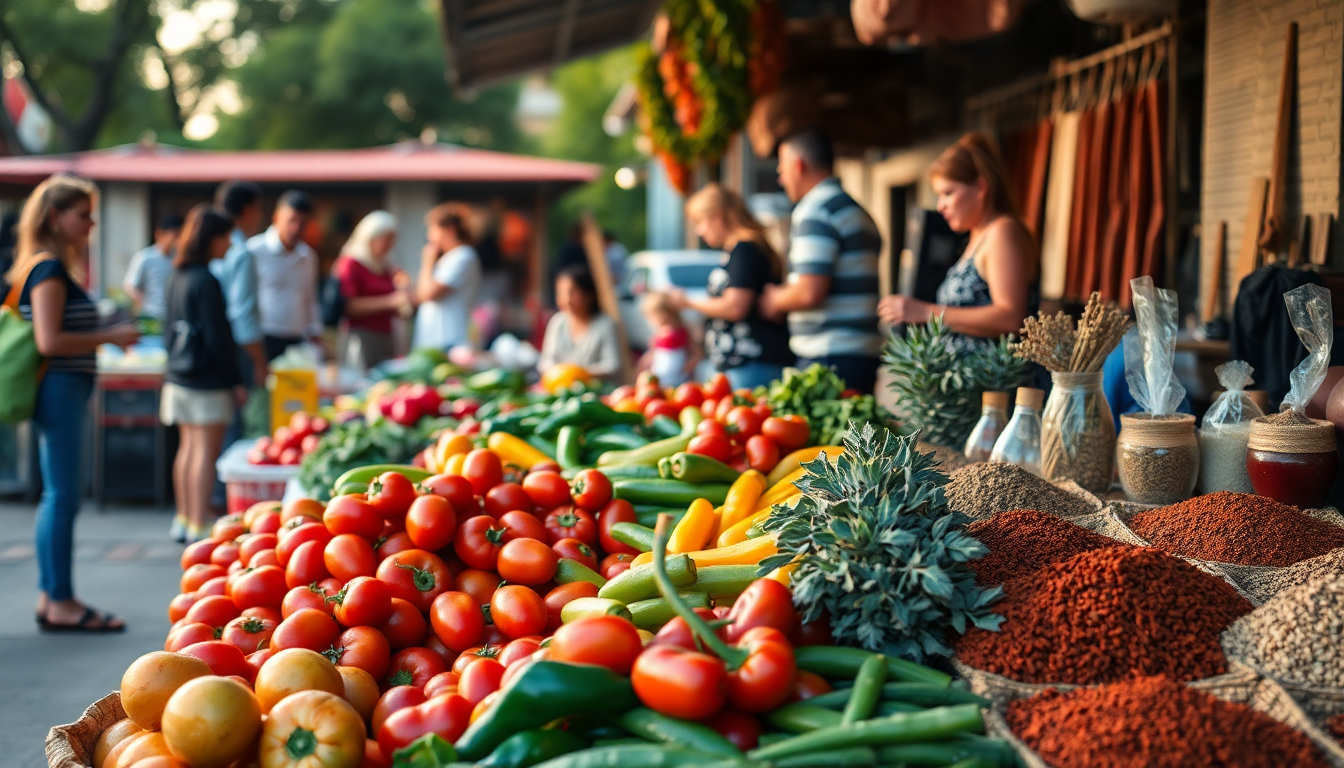Table of Contents
In today’s fast-paced world, have you ever stopped to think about just how important food culture is in shaping our lives? It’s not just about what we eat; it’s about how we connect with each other. As societies evolve, so does our culinary landscape, reflecting broader cultural trends and personal choices. Let’s take a deep dive into the vibrant world of food culture, uncovering its significance in our daily lives, its evolution over time, and how it intertwines with our lifestyles.
The Significance of Food Culture
Food culture is so much more than just a list of dishes we enjoy; it’s a mirror of our identity, heritage, and values. Throughout history, food has acted as a bridge, bringing people together around the dining table to share stories, traditions, and unforgettable experiences. As globalization blurs cultural lines, we witness a fascinating blend of culinary practices from all around the globe, creating unique dining experiences that resonate with diverse communities.
In bustling urban centers, food culture comes alive in vibrant markets and festivals, where local vendors proudly showcase their specialties. These lively gatherings not only boost local economies but also act as platforms for cultural exchange. Have you ever been to a food fair? They’ve become a fantastic way to celebrate different cuisines, allowing attendees to sample dishes from every corner of the world while learning about the rich cultural stories behind them.
And let’s not overlook the impact of social media! Platforms like Instagram and TikTok have completely transformed how we experience food culture. Beautifully plated dishes and the stories behind recipes have turned food into a shared experience that transcends borders. Suddenly, a dish isn’t just a meal; it’s a story waiting to be told!
The Intersection of Food and Lifestyle
As we dive deeper into food culture, it’s clear that it significantly influences our lifestyle choices. Take health-conscious eating, for example. This trend has exploded, with many of us seeking out organic, locally-sourced, and sustainable food options. But this shift is about more than just diet; it’s a reflection of a growing awareness of the environmental and ethical implications of what we put on our plates.
Similarly, the rise of plant-based diets and alternative food sources indicates a significant change in consumer values. More and more people are prioritizing not only their health but also the impact of their food choices on the planet. This shift has led to a surge in vegetarian and vegan restaurants, as well as exciting innovations like lab-grown meat and plant-based substitutes. How cool is it that you can now enjoy a burger that’s kind to both your taste buds and the planet?
Moreover, there’s a renewed interest in traditional cooking techniques and local ingredients as people strive to reconnect with their roots and preserve their cultural heritage. Cooking classes and workshops are popping up everywhere, providing fun avenues for sharing knowledge and skills while fostering a sense of community and culinary diversity.
Future Trends in Food Culture
So, what does the future hold for food culture and lifestyle? As our world faces challenges like climate change and food insecurity, innovative solutions will be crucial. We might see the emergence of vertical farming and community gardens as urban areas look for sustainable food sources. Plus, technology will likely continue to play a significant role, with advancements in food delivery services and meal prep kits designed to fit our fast-paced lives.
And let’s not forget the ongoing conversation about inclusivity in food culture. As more voices join the dialogue, we can expect a richer tapestry of culinary traditions to emerge, celebrating diversity and fostering understanding among different cultures. Exciting times ahead!
In conclusion, food culture is a vital part of our lives, influencing our choices and helping to shape our identities. As we navigate the complexities of modern living, embracing the richness of food culture can elevate our experiences and connections, ultimately enriching our lives and the communities we belong to. So, what’s on your plate today?


